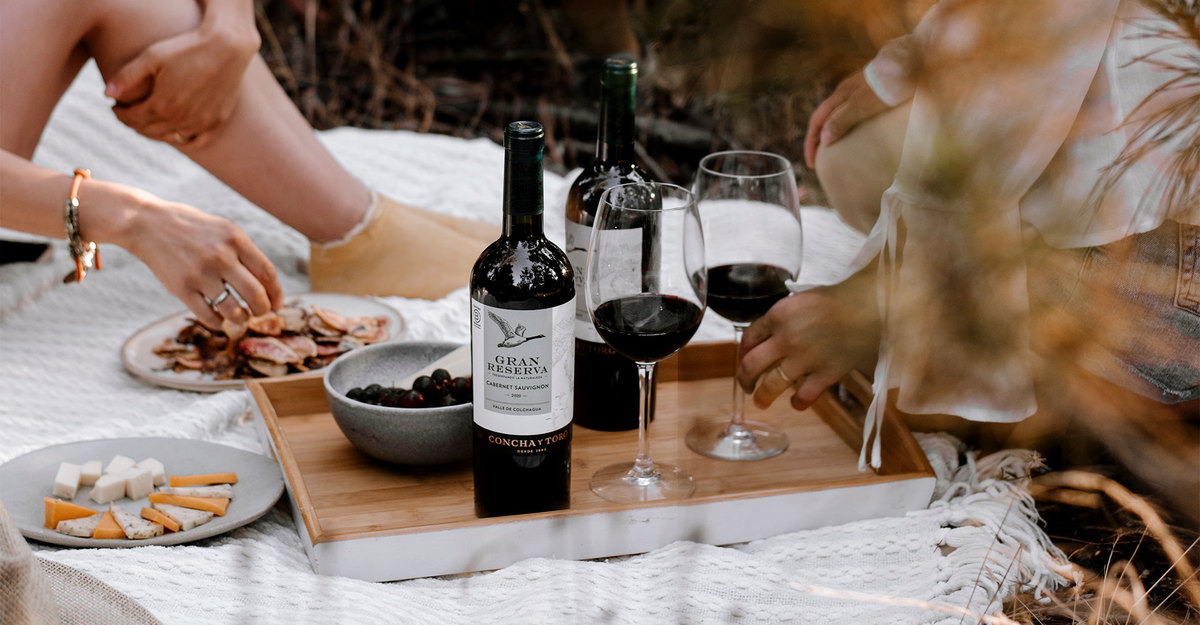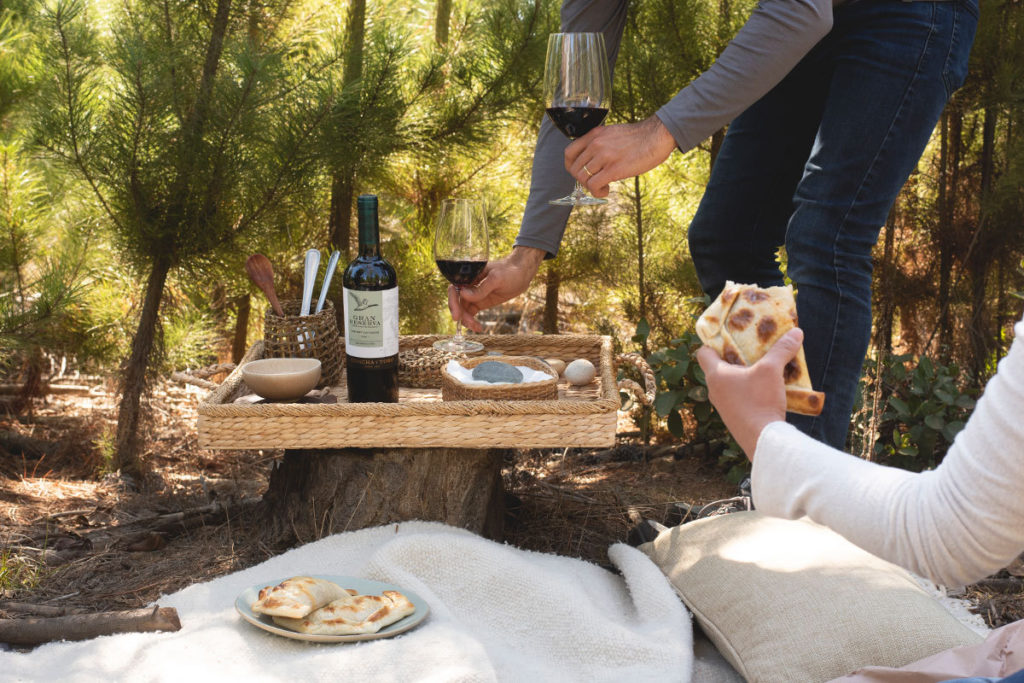5 tips for choosing the perfect outdoor wine


The hot weather is an opportunity to turn our routine upside down. How? By having lunch or dinner outdoors, enjoying a picnic, lighting a grill at sunset, connecting with nature, and, why not? opening a special wine for the occasion.
Here are five tips for choosing the perfect outdoor wine. Always remember to comply with your country’s regulations regarding wine consumption in public spaces, and always leave your picnic area clean.
If you are organizing a picnic with ready-made food, i.e., with cheeses, baguette, pates, boiled eggs, nuts, and chopped fruit, it is best to bring a fresh wine. Ideally, choose a white wine, such as Gran Reserva Sauvignon Blanc, and carry it in a wine cooler bag. With its mineral nose and freshness in the mouth, this wine will not overshadow the flavor of the food. Rosé or light young reds such as a pinot noir also work very well.
If the scenario includes lighting a grill, opting for a wine that supports the smoky notes of what you are cooking is more advisable. Gran Reserva Carmenère is an excellent choice for grilled meats and vegetables that also pairs well with mature cheeses.
Make your life easier and forget about the cork, especially if your chosen outdoor spot is in the middle of nature and you had to do a little trekking to get there. You don’t need a corkscrew to drink high-quality wine. Gran Reserva Sauvignon Blanc is an excellent example, which also opens and closes with a screw cap, making it ideal if you don’t finish your bottle and have to walk back without spilling.

Opting for wines with low alcohol content is much better if you hike to get to your picnic site or if temperatures are too high. You and your companions are likely very thirsty after the hike, so a not-so-alcoholic wine such as Gran Reserva Sauvignon Blanc, with an alcohol content of only 12.5%, works best. In any case, the recommendation is always to drink plenty of water to stay hydrated.
Having the right glasses is essential to enjoy wine and taste its full potential. The first thing that comes to your mind likely is to bring plastic glasses. Please prefer glasses, ideally made of glass. Wine drinks much better in glass than plastic, as the latter significantly affects its aroma.
Because the last thing you want is to turn over a glass after you’ve carried it to your picnic site, consider taking some accessory that ensures your wine will be safe. It can be this picnic table and wine glasses (if the surface is relatively flat), or if you are somewhere with a bumpy surface, this portable stand to bury in the ground is a great idea.
We comply with the highest standards of verified social and environmental performance, transparency, and legal responsibility to balance benefit and purpose.
We adopt an Impact Business Model, creating beneficial links between business, community, and environment.
The Gran Reserva vineyards are an important part of the project to conserve native forest areas and protect local biodiversity. Our native forests have the ability to retain rainwater and control the kind of climate change that results from water shortages.
We take care of 1,432 hectares of protected forests and, on average per vineyard, a total of 105 species of fauna and 48 species of registered flora.
Our effort to preserve nature begins with responsible water consumption. 99% of the water we use comes from surface and subterranean sources.
Our vineyards are drip irrigated, which translates to a 90% efficiency on water consumption, and over the past 3 years, we’ve reduced our water footprint by 10%.
All of our winemaking processes require the use of energy. Our choice to invest in clean, renewable energy reflects our desire to co-create a sustainable planet for the future.
100% of the electricity used to make the wines in the Gran Reserva collection come from renewable sources, including solar energy.
Concha y Toro has been certified under the Wines of Chile Sustainability Code since 2012, which means that our vineyards are officially recognized as sustainable vineyards.
The wines in our Gran Reserva collection are crafted entirely from estate-owned grapes in sustainably managed vineyards.